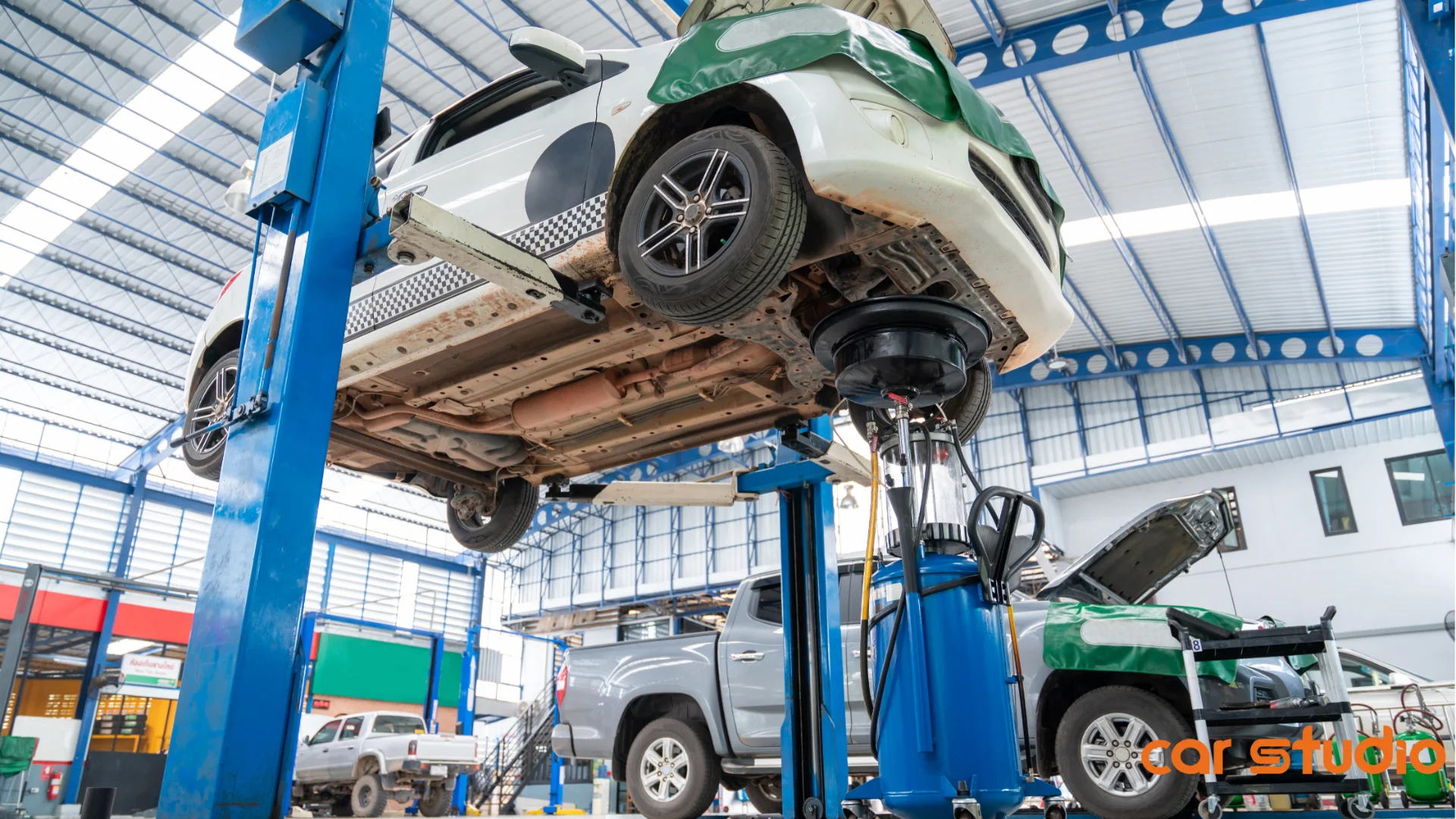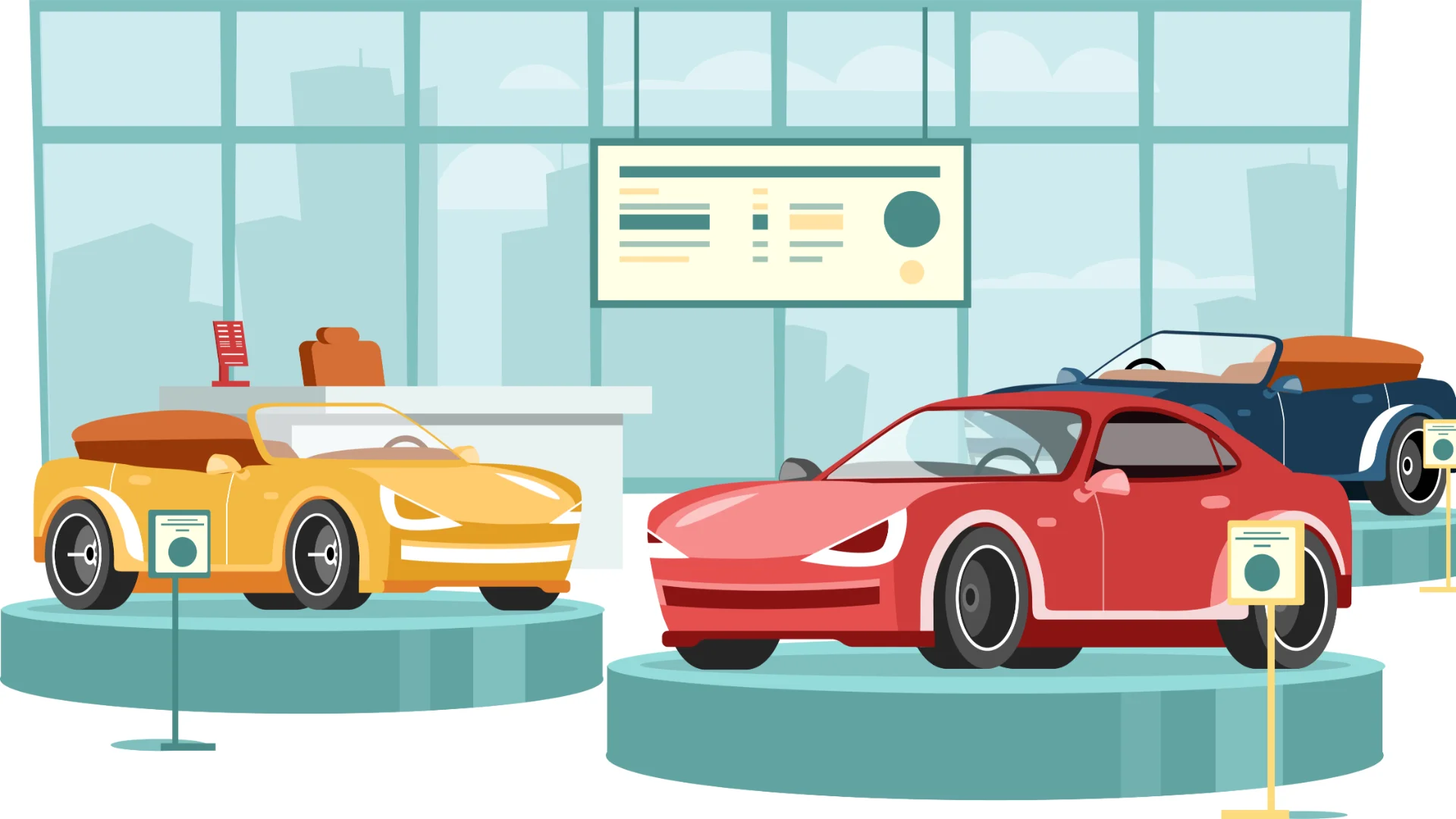
2025 Automotive AI: The Marketing Shifts You Can’t Ignore
2025 Automotive AI: The Marketing Shifts You Can’t Ignore
Introduction
The automotive industry is evolving faster than ever before. What once relied on showroom visits and physical test drives now begins with digital discovery a scroll, a search, or a click. As Car Studio AI’s insights on 2025 Automotive Marketing Trends: Strategies That Work emphasize, the path to purchase has become data-driven, visual, and emotionally intelligent.
In this era, artificial intelligence (AI) is no longer a distant innovation; it is the creative engine powering the automotive marketing world. From content creation to buyer engagement, AI is redefining how dealerships, brands, and agencies connect with customers. But even as algorithms rise, the secret to success remains deeply human: authenticity, individuality, and trust.
This article explores how AI is reshaping automotive marketing in 2025 how technology and emotion can coexist, and how brands can adapt without losing their human voice.
The AI Frontier: More Than Just Efficiency
For decades, automotive marketing has followed a predictable pattern: produce ads, generate leads, convert sales. Today, that formula no longer works. Consumers are digitally fluent, emotionally aware, and resistant to generic messaging.
As noted in 2025 Global AI Trends in Automotive Marketing, AI isn’t just about automation it’s about augmentation. Marketers are using machine learning not to replace creativity, but to refine it. AI tools analyze millions of data points, identify hidden patterns, and help brands deliver stories that feel personal, timely, and relevant.
The new frontier is “intelligent creativity”: merging data precision with human imagination. When done right, this combination turns marketing from a process into an experience one that feels tailored, empathetic, and authentic.
Visuals That Speak: The Power of AI-Enhanced Imagery
A buyer’s first impression of a car often happens online. The photograph not the test drive is what determines interest. This is where AI-based image processing tools, such as those integrated by Car Studio AI, play a transformative role.
As discussed in Top Automotive Marketing Trends for 2025, high-quality visual content builds credibility. AI now enables dealerships and online platforms to automatically remove cluttered backgrounds, standardize lighting, and generate studio-level imagery at scale.
360-degree views, dynamic reflections, and AI-generated showroom environments allow potential buyers to experience vehicles virtually. These visuals don’t just look professional they inspire confidence.

And more importantly, they democratize access: smaller dealerships can now compete with large automotive brands by presenting vehicles in equally stunning quality.
Authenticity in the Age of Algorithms
While technology handles the visuals and data, the message itself must remain real. Today’s buyers have developed a deep skepticism toward overly polished, corporate communication. They crave honesty, imperfection, and relatability.
Authenticity means acknowledging that cars are not just machines they are extensions of lifestyle, personality, and identity. AI can analyze data, but it is the marketer’s responsibility to translate insights into human stories.
One of the biggest takeaways from Car Studio AI’s 2025 strategy discussions is that audiences respond most strongly to content that mirrors their world diverse, unpredictable, and real. A post featuring a used car with genuine customer feedback may outperform a flawless studio shoot. AI helps identify these trends, but it is the human voice that makes them resonate.
Individuality: The New Competitive Edge
In a saturated digital landscape, sameness is the enemy.
AI offers tools to personalize at scale recommending vehicles, tailoring ads, or customizing pricing but individuality demands more than personalization.
It’s about allowing your brand to express character. Whether it’s the confident tone of a luxury car brand or the friendly transparency of a family dealership, individuality defines how technology feels.
In 2025, the most successful automotive brands use AI not to standardize communication, but to differentiate it. Machine learning models can adapt brand tone dynamically, allowing the same company to sound warm in a customer chat, bold in a digital ad, and informative in a product video.
Individuality is no longer limited to design; it’s built into the very voice of your brand.

Personalization at Scale
AI’s greatest strength is its ability to make mass communication feel intimate.
By analyzing browsing habits, location data, and engagement metrics, AI can predict what each user wants to see and when.
Imagine a customer browsing SUVs late at night. The next day, they receive a message showing fuel-efficient models available nearby, paired with visuals that match their browsing history. None of this feels forced; it feels relevant.
As Car Studio AI’s findings underline, personalization drives both trust and conversion. But it works best when grounded in respect: showing that you understand a buyer’s needs without crossing the line into intrusion.
Efficiency Meets Creativity
Beyond content creation, AI streamlines the operational side of marketing.
Dealerships can automate repetitive tasks such as inventory updates, ad optimization, and image management. This operational agility enables teams to focus on creative strategy the human side of marketing that AI cannot replicate.
As noted in Car Studio AI’s “Strategies That Work,” the combination of creative freedom and machine efficiency defines the modern marketing ecosystem. The brands that thrive in 2025 are those that let AI handle the mechanics so their teams can focus on storytelling.
Data Ethics and Transparency
With great data comes great responsibility.
As AI collects behavioral information to deliver hyper-personalized experiences, marketers must ensure transparency, fairness, and privacy compliance.
Regulations such as GDPR are not obstacles but foundations for trust. Customers are far more likely to engage with brands that explain how their data is used. Ethical AI practices from anonymized data handling to opt-in personalization are now non-negotiable elements of brand integrity.
The future belongs to companies that blend intelligence with accountability.
Building a Future-Proof Strategy
Integrating AI into your marketing strategy isn’t about following a trend it’s about redesigning how your organization operates.
Start small: identify the areas where AI can make an immediate difference, such as photo enhancement, ad targeting, or customer service automation. Train your team to interpret AI insights rather than blindly follow them.
A future-proof strategy is iterative: you test, analyze, and evolve. Regular training sessions, open data reviews, and alignment meetings between marketing and tech teams ensure that AI remains a tool for empowerment, not confusion.
Staying Ahead of the Curve
AI evolves quickly, and so should your marketing approach.
Keep your team informed by attending industry events, following automotive marketing publications, and maintaining partnerships with innovative vendors.
As Car Studio AI’s leadership often notes, the most resilient companies are those that treat learning as a permanent part of their culture. In an era where yesterday’s tools may feel outdated tomorrow, adaptability becomes the ultimate competitive advantage.

Conclusion
The automotive marketing world of 2025 is defined by contrast: speed and empathy, automation and authenticity, intelligence and individuality.
AI has already transformed how cars are presented, how customers are understood, and how marketing teams operate. Yet, its greatest contribution lies not in replacing human creativity, but in enhancing it.
As reflected across Car Studio AI’s thought leadership from global AI trends to practical marketing strategies the future of automotive marketing belongs to brands that understand this balance.
Technology provides the tools; humanity provides the meaning.
To stay ahead, marketers must embrace both.
Those who combine the precision of AI with the authenticity of human connection will not just adapt to 2025 they will define it.
FAQs on AI in Automotive Marketing
1. What are the first steps to integrating AI into automotive marketing?
Begin by identifying bottlenecks in your current process — tasks that consume time without adding creative value. Implement AI tools for repetitive workflows such as photo editing, content tagging, or lead scoring. Gradually expand to more advanced areas like predictive analytics and customer segmentation.
2. How does AI improve customer engagement?
AI enhances engagement by delivering personalized, context-aware experiences. Features such as virtual tours, customized ads, and behavior-based recommendations make interactions more relevant and emotionally resonant.
3. Can AI reduce operational costs for dealerships?
Yes. By automating manual processes, AI reduces labor hours and minimizes errors. Dealerships that implement AI image processing and automated marketing workflows report significant savings while maintaining consistent quality.
4. What about data privacy concerns?
Data privacy is central to responsible AI. Ensure that all marketing tools comply with data protection laws such as GDPR and provide users with clear consent options. Transparency about how data is collected and used strengthens customer trust.
5. How can small dealerships leverage AI without major investment?
Cloud-based AI solutions offer scalable pricing models. Many platforms allow smaller businesses to pay based on usage rather than volume, making high-end automation accessible without heavy upfront costs.
6. How can teams balance automation and authenticity?
Treat AI as a collaborator, not a replacement. Allow automation to handle efficiency, but preserve the creative human touch in messaging, tone, and storytelling. Authenticity remains the element that differentiates your brand.
